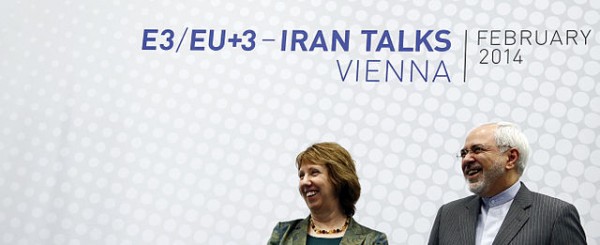
Photo Credit: Dragan Tatic
 Mohsen Milani is the Executive Director of the Center for Strategic and Diplomatic Studies at the University of South Florida, where he is a professor of international relations. Dr. Milani is an internationally recognized authority on Iranian foreign policy and Middle Eastern geopolitical affairs. He has served as a research fellow at Harvard, Oxford, and Italy’s Foscari University and written extensively on Iranian foreign policy and Middle Eastern affairs. His book, The Making of Iran’s Islamic Revolution, is a widely referenced work in many American, Canadian, European and Asian academic institutions. He is also a highly sought-after authority by major international news media outlets.
Mohsen Milani is the Executive Director of the Center for Strategic and Diplomatic Studies at the University of South Florida, where he is a professor of international relations. Dr. Milani is an internationally recognized authority on Iranian foreign policy and Middle Eastern geopolitical affairs. He has served as a research fellow at Harvard, Oxford, and Italy’s Foscari University and written extensively on Iranian foreign policy and Middle Eastern affairs. His book, The Making of Iran’s Islamic Revolution, is a widely referenced work in many American, Canadian, European and Asian academic institutions. He is also a highly sought-after authority by major international news media outlets.
Dr. Milani recently sat down with Reza Akhlaghi of the Foreign Policy Association to talk about Iran’s nuclear program, the threat of the Islamic State (ISIS), and U.S.-Iran relations.
_________________________________________________________________________
What is your assessment of the direction the current nuclear negotiations with Iran is taking? What were the key successes from the negotiations in New York?
I am still cautiously optimistic about the outcome of the current negotiations, even though no discernible progress was made in New York. My optimism is predicated on the assumption that Ayatollah Khamenei and President Obama have prudently concluded that negotiations are infinitely more preferable to other alternatives such as war, imposition of more sanctions, or containment of Iran.
Substantial progress has been made since the signing of the Joint Plan of Action (JPOA) by Iran and the six global powers in November 2013. On the political front, the JPOA was the first agreement ever to be signed by the U.S. and the Islamic Republic about Iran’s nuclear program. Nowadays, high ranking Iranian and American diplomats meet on a regular basis, something that was inconceivable even two years ago.
On the technical level, Iran stopped producing 20 percent enriched uranium and converted its stockpile into reactor fuel, or to 3.4 percent purity. (The stockpile was one of the major concerns by the West about Iran’s nuclear program.) Iran has reportedly agreed to make the highly fortified, underground Fordow site into a research and development facility. Fordow is currently used for enrichment activities. Iran also agreed to modify the design of the Arak heavy water reactor to prevent the production of the weapons-grade plutonium.
Moreover, Tehran has agreed to the most intrusive inspection regime in the history of the International Atomic Energy Agency (IAEA). In return for Iranian concessions, the United States and its allies pledged to gradually unfreeze small portions of Iran’s estimated $110 billion in frozen assets, impose no new sanctions, and lift some of the less damaging sanctions. The crippling sanctions on the Iranian oil and financial/banking sectors remain in place and will not be lifted before a final deal is reached.
The critics of the JPOA are utterly disingenuous and wrong by saying that Iran has given up nothing and gained everything. The JPOA has irrefutably frozen or slowed down some key components of Iran’s nuclear program, and substantially prolonged its breakout period, that is the time required to build a nuclear bomb, if Tehran decides to do so. As such, the West now has ample time to neutralize any attempt by Tehran to build a bomb.
What are some of the major impediments to a final nuclear agreement?
There are some contentious issues that have not yet been resolved. Iran demands that the term of any final agreement must cover a short period, preferably five years, and must lead to the immediate and complete removal of all sanctions.
Moreover, Tehran wants concrete assurances that once the term of a final agreement expires, Iran is allowed to have the same rights and privileges enjoyed by all other signatories of the Non-Proliferation Treaty (NPT). Clearly, the longer the term of the final agreement, the more control the West will exercise over Iran’s nuclear program. This explains why the U.S. talks about an agreement that is enforceable for at least a decade, if not longer. Moreover, the U.S. wants a gradual and reversible lifting of the sanctions to insure that Iran fully implements all its obligations.
Another decisive issue is Iran’s enrichment activities. Iran insists that as an NPT signatory it has an inalienable right to enrich uranium on its own soil. My take is that the JPOA has implicitly recognized Iran’s right to enrich uranium. This is a victory for Iran, considering that only a few years ago President George W. Bush insisted on “zero enrichment” for Iran. Today, Washington is demanding a significant reduction in the number of Iranian centrifuges, reportedly in the low thousands. Iran has some 19,000 centrifuges, with more than 9,000 of them fully operational. Ayatollah Khamenei, the country’s ultimate decision-maker, has declared that Iran should produce enough uranium to be self-sufficient to fuel its research reactors. Despite this huge gap in the positions of the two counties, the quality of the centrifuges Iran can have and the way they can function as well as duration of a final agreement could keep open the door for a compromise.
Even if the two sides could not reach a final agreement by the Nov. 24, 2014 deadline, they will extend the deadline. The two sides have gained too much to abandon the talks—the only viable solution to resolve Iran’s nuclear impasse.
What do you make of Iranian hardliners’ relentless efforts against a comprehensive deal with the West/United States? What is at stake for Iran’s hardliners in a permanent nuclear deal?
Let me make two observations about the opposition to a comprehensive deal with Iran. First, some Middle Eastern countries and certain members of the U.S. Congress vehemently oppose a final nuclear agreement with Iran unless it leads to the total dismantling of Iran’s entire nuclear program. This is an unrealistic demand, for Iran has already become a virtual nuclear power, capable of building a nuclear bomb should it decide to do so. Second, I see no problem at all with the Iranian hardliners expressing their opposition to President Rouhani’s nuclear policies. In fact, I welcome it. A final agreement that is not publicly debated in Iran and does not enjoy substantial support among Iranians and among the powerful segments of the country’s ruling elite, would be neither sustainable nor fully enforceable.
Clearly, some Iranian hardliners oppose a nuclear deal because they are making enormous financial profits from the status quo and the thriving black markets the sanctions have created. There is also the question of trust. A large number of hardliners simply don’t trust the U.S. and the West, so they are genuinely concerned that a final nuclear agreement could stop or reverse the impressive gains Iran has made in the field of nuclear energy.
Finally, there is justifiable fear among Iranian hardliners that should Rouhani succeed in finalizing a comprehensive deal with the West, it would significantly strengthen the hands of pragmatists and moderates and could lead to their victory in the upcoming parliamentary elections in 2015. In Iran, as in the U.S., “all politics are local” and the nuclear negotiations can’t be separated from the ongoing power struggle.
Does President Rouhani have allies in the Islamic Revolutionary Guards Corps (IRGC) who would support his social and political reforms? How reliant do you think President Rouhani is on IRGC support?
According to the Iranian Constitution, the IRGC is responsible to the Supreme Leader, not the president. The IRGC was established in 1979 by Ayatollah Khomeini to protect the Islamic character of the new political order and protect the Office of the Supreme Leader. The IRGC is not a monolithic entity and reflects the diversity of Iranian political life; there are hardliners, moderates, and reformists in their midst. President Rouhani, like previous presidents, has his own supporters within the IRGC. But the IRGC is ultimately subservient to Ayatollah Khamenei and will support whatever decision he makes.
As an ultimate insider, President Rouhani understands that domestic reforms in the Islamic Republic can proceed at a snail’s pace and only after the approval by Ayatollah Khamenei. So far, Rouhani has maintained excellent relations with the Supreme Leader. Rouhani has devoted much of his energy to resolving the nuclear impasse with the West, improving Iran’s economic conditions, and moderating Iranian foreign policy. Domestic reforms have not been high on his agenda. He seems to believe that should he succeed in finalizing a nuclear agreement, he would be in a more favorable position to initiate the needed reforms. Rouhani’s reformist supporters are increasingly skeptical of this calculation.
In your recent piece in the Foreign Affairs, you write about the convergence of U.S.-Iranian interests in Iraq against the Islamic State. Do you think the sensitive issue of Kurdish independence in Iraq and the growing support the independence has in the U.S. could work against an effective U.S.-Iranian cooperation in Iraq?
It would be prudent for the U.S. and Iran to directly or indirectly cooperate with each other against the ISIS. Iran is the most consequential regional power in Syria and Iraq and it has considerable experience fighting Sunni Jihadists and has provided multifaceted support to the Iraqi and Syrian governments. In his recent trip to New York, President Rouhani reminded his audience that had it not been for the Iranian support, Baghdad would have fallen to ISIS forces.
For the past two years, Tehran has warned Washington about the growing danger of extremism in Syria. However, Washington ignored these warnings. Part of the problem was that some of America’s regional allies were so obsessed with overthrowing Assad that they were prepared to support any militant group willing to fight Assad. Now the chicken has come home to roost as one of those groups, ISIS, is posing a serious security threat to the entire region and the West.
President Obama’s determination not to put American boots on the ground “to degrade and destroy ISIS” means that Washington must rely on its regional allies to fight ISIS. One such reliable ally is the Kurdistan Regional Government (KRG) and its Peshmarga forces. When ISIS took over Mosul in Iraq and threatened the KRG, Iran was the first country to provide weapons and logistical support to the Kurds. That critical support, as well as Iran’s close ties to the KRG, does not mean Iran would remain silent should the Kurds seek independence in Iraq.
As ISIS was advancing inside Iraq, President Barzani of the KRG flirted with the idea of holding a referendum to determine if the Kurds wished to become independent. Interestingly, Jalal Talebani, former Iraqi President and a seasoned Kurdish leader, did not support this idea at a time when the terrorists were threatening the territorial integrity of Iraq. Iran quietly informed President Barzani of the dire consequences of holding a referendum. Barzani wisely decided not to hold the proposed referendum.
Both the United States and Iran oppose an independent Kurdish state in Iraq, although the Iranian opposition seems to be more vehement than Washington’s. An independent Kurdistan in Iraq would give incentives to Iran’s own ethnic minorities to seek independence, which could jeopardize Iran’s territorial integrity. Tehran is likely to support a strong federal system in Iraq in which the Kurds would enjoy substantial political independence, but Tehran would remain in firm opposition to any partitioning of Iraq.